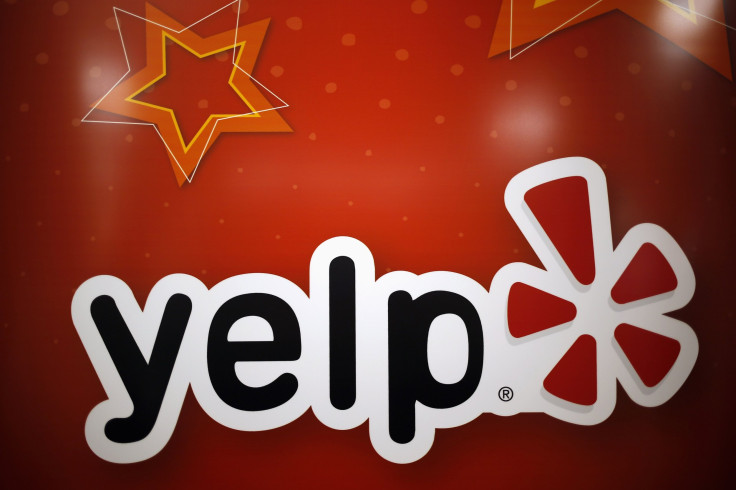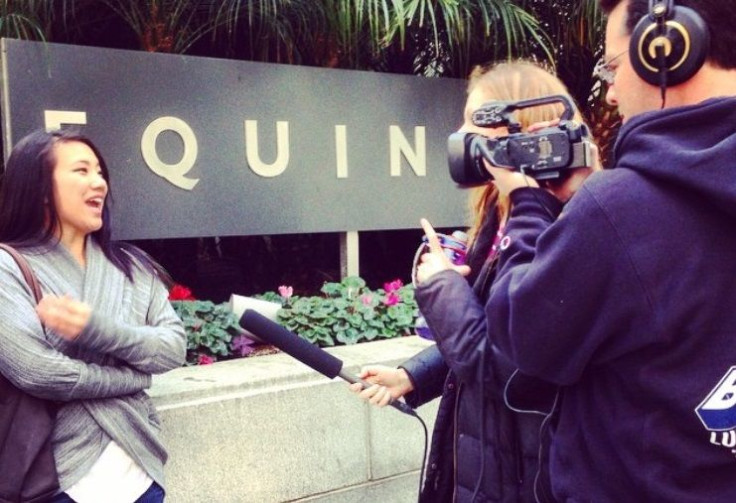Yelp The Movie: San Francisco Filmmaker Takes On ‘Billion Dollar Bully’

Yelp Inc. is one of Silicon Valley’s most feared arbiters. In Yelp’s world, a five-star rating can generate customers and profits for small businesses, but a passing rant from a disgruntled customer can leave a permanent black mark. And not everyone thinks they’re getting a fair shake, particularly because of what many business owners see as a glaring conflict of interest: Yelp derives most of its revenue from selling advertising space to the very businesses its users rate.
Further fueling the tensions are Yelp’s notoriously aggressive salespeople, its mysterious algorithm -- which critics say filters out positive reviews and favors negative ones -- and, of course, an alleged culture of extortion in which businesses that choose not to advertise are penalized. That last claim is one Yelp fervently denies, the courts have rejected and at least one independent research study has debunked. Nevertheless, it persists among local businesses across the country.
Enter Kaylie Milliken, a documentary filmmaker in Yelp’s hometown of San Francisco, who has been collecting stories of woe from local business owners for her upcoming movie “Billion Dollar Bully.” (Among her subjects is Davide Cerretini, the Bay Area restaurateur who famously subverted Yelp’s rules last year by encouraging his customers to leave one-star reviews for his Italian restaurant.) Milliken’s film, which looks at the effect of Yelp on small businesses, is about halfway through filming, and her production company, Prost Productions, is launching a Kickstarter campaign on Monday, hoping to raise $60,000 in 35 days to finish the project.
Milliken spoke with International Business Times by phone from her home in San Francisco, where she discussed her efforts to take on the online review giant.

International Business Times: So what made you decide to make a movie about Yelp?
Kaylie Milliken: I was at a doctor about a year ago, and she started telling me about her experiences with Yelp. The more she talked about it, the more my jaw just kind of dropped. I knew that they had aggressive salespeople -- my husband is a small-business owner and he’s complained before about how pushy they can be. But then she started telling me about receiving reviews, really negative reviews by clients, and she couldn’t figure out who these clients were. She was really upset over it. And then she received a review where the client listed ailments about themselves that she had never seen before, and this was the day after she had gotten off the phone with someone from Yelp.
IBTimes: What happened when you started researching it?
Milliken: I found that it wasn’t a unique story. At first, I didn’t know if it was just unhappy business owners who weren’t getting the positive feedback that they wanted, or if it was something that was extortion, and based on the research I did, it sounded like a lot of extortion going on.
IBTimes: What is the scope of your film?
Milliken: On camera I’ve interviewed about six different business owners at this point. There are a lot of different business owners that I’ve spoken with that will not go on camera because they’re afraid of retaliation from Yelp. I would say that equates to about 80 percent of the businesses I spoke with. They said that they’ve worked hard to get back in Yelp’s good graces, and they don’t want to jeopardize that. Ideally I would love to interview somebody at Yelp, but so far they’ve declined.
IBTimes: So you’ve tried to reach them?
Milliken: Yes, they’ve told me they would answer questions via email, but they won’t let me record a phone call and they won’t let me go in with a camera.
IBTimes: Yelp has patently denied that there’s a correlation between negative reviews and advertising, and one study conducted by Harvard Business School found no evidence that non-advertisers were getting more negative reviews.
Milliken: I don’t see how all these businesses who have nothing to do with each other could continue to have the same story. It’s not just people who feel like they have an ax to grind. These businesses -- I have screenshots where it shows all their reviews one day, and then a phone call happens, and the following day, or several hours later, all these five-star ratings are gone, and one- or two-star ratings are up. So I know there is that Harvard Study, but I just don’t have a lot of faith in it at this point.
This interview has been edited for length and clarity. Christopher Zara is a senior writer who covers media and culture. News tips? Email me here. Follow me on Twitter @christopherzara.
© Copyright IBTimes 2024. All rights reserved.












